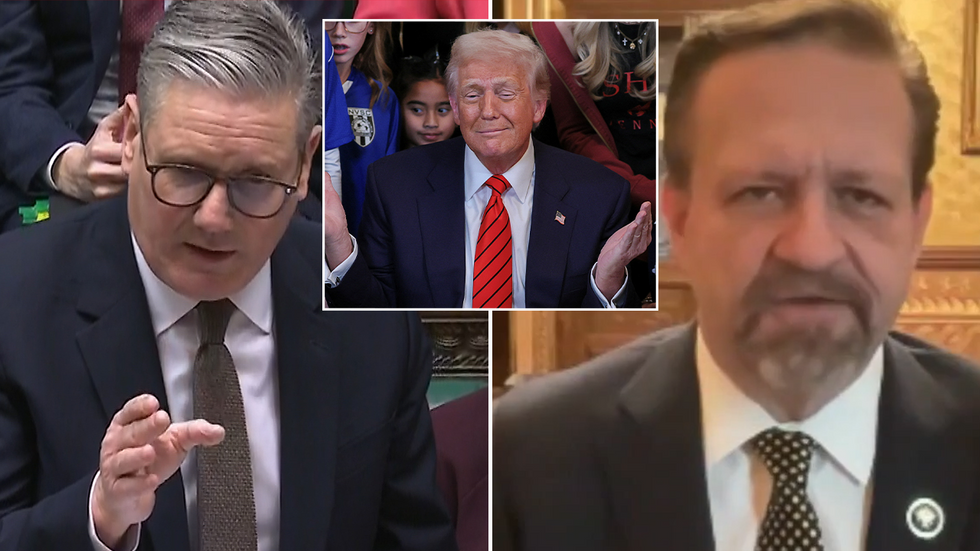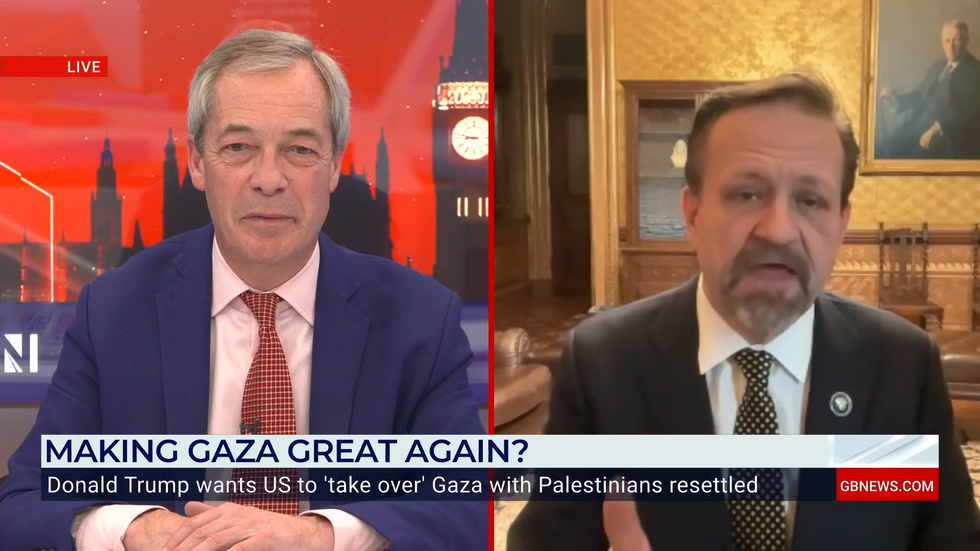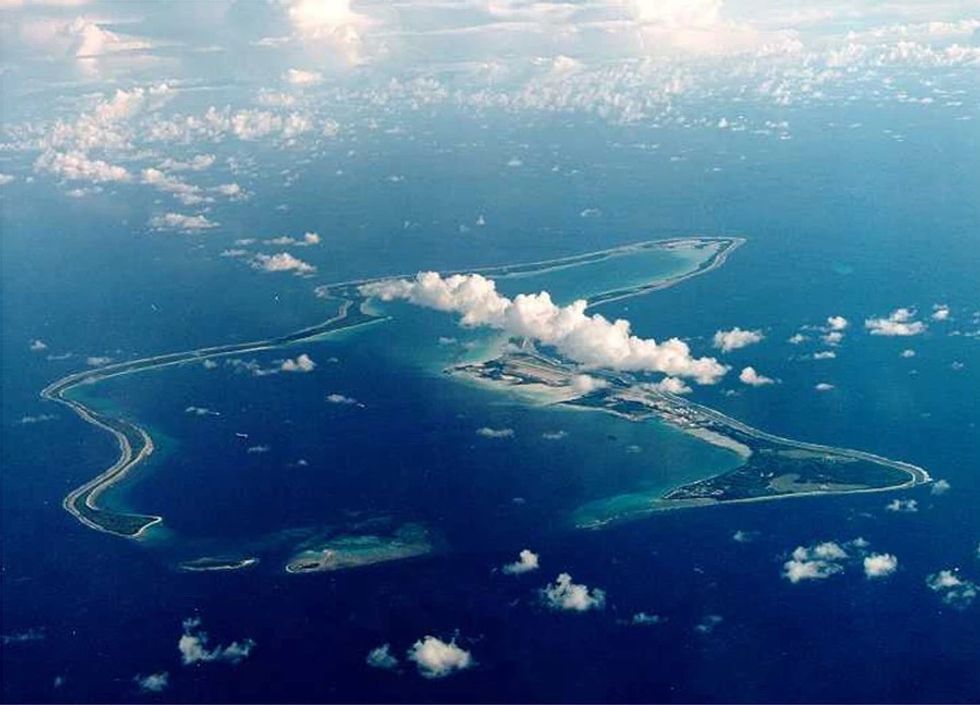Ben Chapman
Guest Reporter
Donald Trump’s counter-terror pick Sebastian Gorka has told GB News why the US President has kept ‘quiet’ so far about Keir Starmer’s Chagos plans.
The agreement would see the Labour cede sovereignty of the Islands to Mauritius.
The deal faces many complications with concerns Donald Trump’s administration may stand in the way of such a development.
Gorka spoke to Nigel Farage about what the thinking is in Washington as Trump weighs up whether to make a shock intervention.

“I’m not going to qualify what the British Government is doing”, he said.
“I have consulted with the national security team here and we are reviewing what the Brits are doing and what 10 Downing Street is proposing.
LATEST DEVELOPMENTS

“I’m authorised to say this, Diego Garcia is not insignificant to Washington and to this building, the White House.
“America first does not mean America alone. If you look at the 20th century and how US interests, with our allies, our special friends in the UK, have been realised globally, the future of that land mass of the Diego Garcia is not irrelevant to Mr Trump.”
The controversy has intensified in recent days with ministers facing mounting criticism of the deal.
Sir Keir Starmer has insisted the deal is crucial for national security.

Speaking in Parliament, Starmer warned that without the agreement, the strategically important Diego Garcia military base could face operational difficulties.
"Without legal certainty, the base cannot operate in practical terms as it should," Starmer told MPs. "That is bad for our national security and it's a gift for our adversaries."
Tory leader Kemi Badenoch claimed the plan was an “immoral surrender”, a point Starmer rallied against by pointing out that negotiations had begun under the previous Conservative government.
Mauritian Prime Minister Navin Ramgoolam told his country's National Assembly that he had secured changes to ensure payments from the UK would rise with inflation.
The UK government has firmly denied reports that the deal's cost could rise from £9 billion to £18 billion.
Foreign Office minister Stephen Doughty told parliament the reports were "categorically untrue," stating: "There is no change to the substance or the quantum in relation to the agreement."
A Foreign Office spokesman insisted: "The figures being quoted are entirely inaccurate and misleading."
The government has so far declined to reveal the exact cost of the agreement.
Find Out More...
The agreement would see the Labour cede sovereignty of the Islands to Mauritius.
The deal faces many complications with concerns Donald Trump’s administration may stand in the way of such a development.
Gorka spoke to Nigel Farage about what the thinking is in Washington as Trump weighs up whether to make a shock intervention.

“I’m not going to qualify what the British Government is doing”, he said.
“I have consulted with the national security team here and we are reviewing what the Brits are doing and what 10 Downing Street is proposing.
LATEST DEVELOPMENTS
- 'Giving away control!' Cummings mocks Starmer's Chagos 'sell out' as he unveils new Brexit-style £350m bus exposing Winter Fuel betrayal
- Blow to Trump as US imports surge to record high amid backlash to tariff threat
- Farage blasts ‘terrified’ Starmer after local elections AXED as Reform leader predicts tidal wave

“I’m authorised to say this, Diego Garcia is not insignificant to Washington and to this building, the White House.
“America first does not mean America alone. If you look at the 20th century and how US interests, with our allies, our special friends in the UK, have been realised globally, the future of that land mass of the Diego Garcia is not irrelevant to Mr Trump.”
The controversy has intensified in recent days with ministers facing mounting criticism of the deal.
Sir Keir Starmer has insisted the deal is crucial for national security.

Speaking in Parliament, Starmer warned that without the agreement, the strategically important Diego Garcia military base could face operational difficulties.
"Without legal certainty, the base cannot operate in practical terms as it should," Starmer told MPs. "That is bad for our national security and it's a gift for our adversaries."
Tory leader Kemi Badenoch claimed the plan was an “immoral surrender”, a point Starmer rallied against by pointing out that negotiations had begun under the previous Conservative government.
Mauritian Prime Minister Navin Ramgoolam told his country's National Assembly that he had secured changes to ensure payments from the UK would rise with inflation.
The UK government has firmly denied reports that the deal's cost could rise from £9 billion to £18 billion.
Foreign Office minister Stephen Doughty told parliament the reports were "categorically untrue," stating: "There is no change to the substance or the quantum in relation to the agreement."
A Foreign Office spokesman insisted: "The figures being quoted are entirely inaccurate and misleading."
The government has so far declined to reveal the exact cost of the agreement.
Find Out More...
